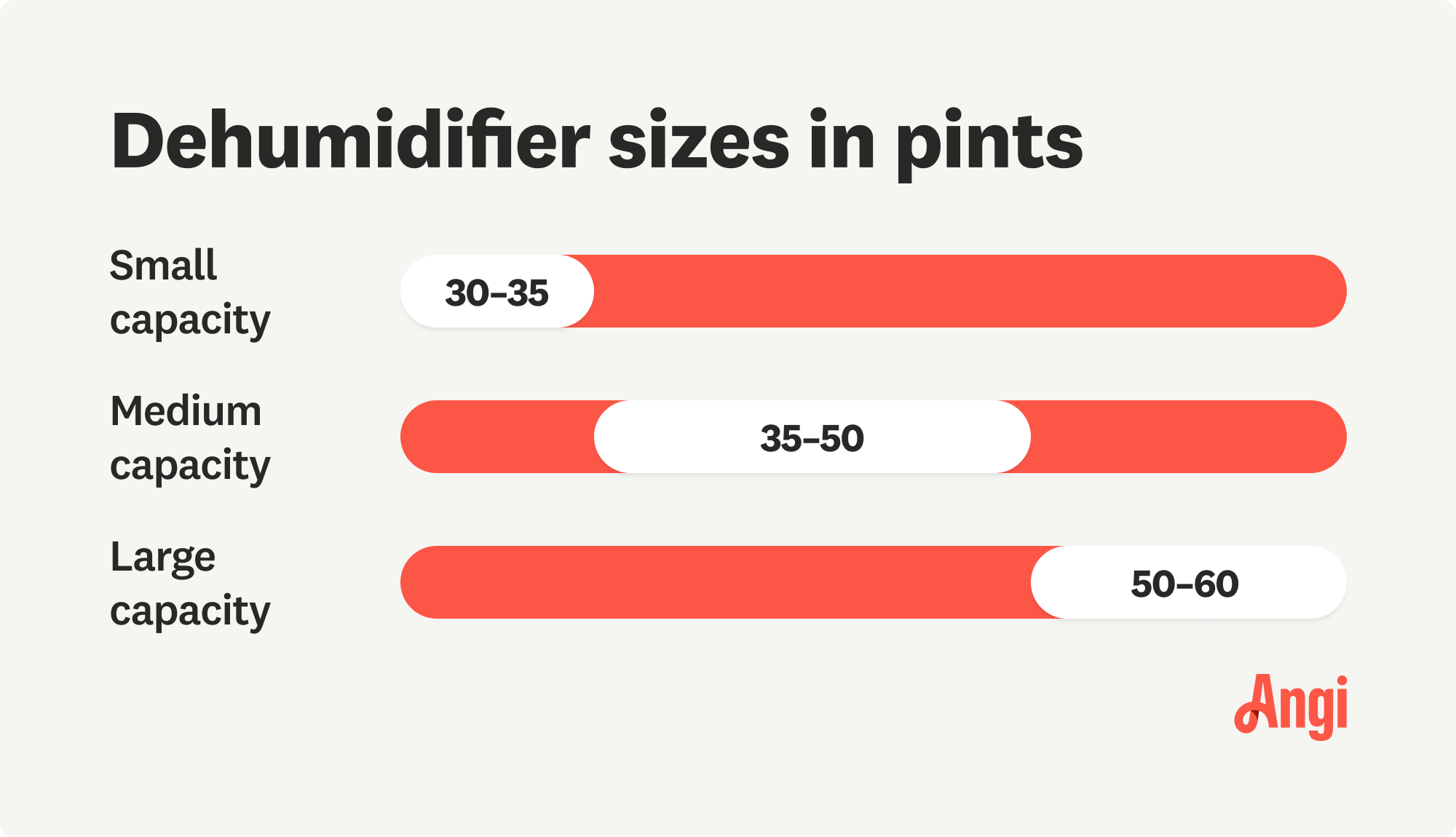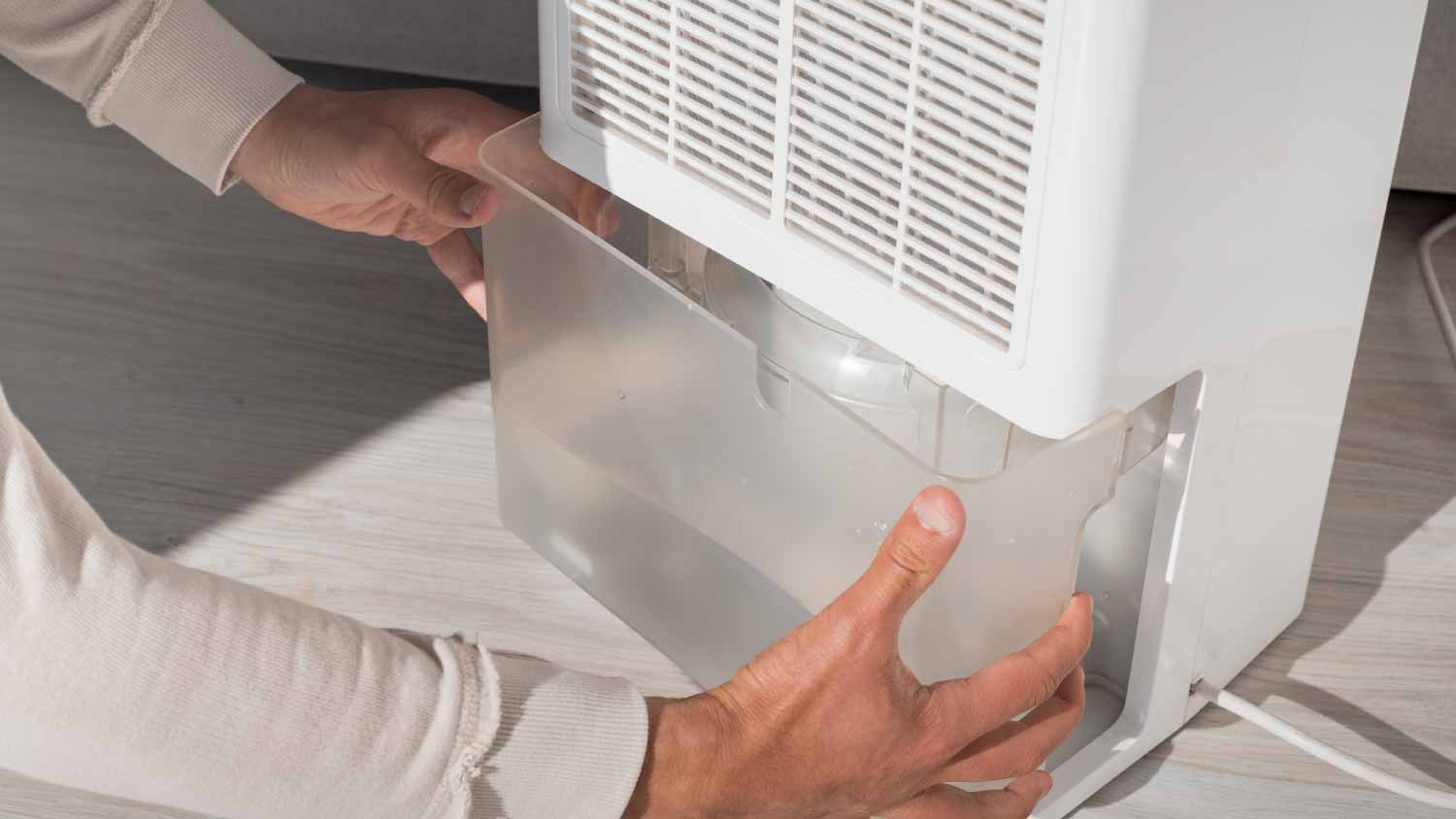
Find out the average humidifier repair cost, what impacts pricing, and how to save. Get expert tips to budget for your humidifier repair.
Dehumidifiers appliances are great moisture managers, but don’t affect temperature
Dehumidifiers remove excess moisture from your space by converting moisture into droplets that get pushed out of the room.
These systems cannot change the actual temperature in a room, but can make you feel cooler by proxy.
Dehumidifiers provide other benefits, such as mold prevention and air purification.
You can use dehumidifiers in combination with alternative cooling methods, such as fans or portable air conditioning units.
Humidity can make an 80-degree day feel twice as hot, and the same can be said for a room with extra moisture in the air. While a dehumidifier is great at removing moisture, does a dehumidifier cool a room?
This type of system won’t affect the actual temperature in the room. However, they can help your body cool down by allowing for drier conditions so sweat can evaporate more easily.
Our guide can help you decide when it’s best to use a dehumidifier and whether you should hire a dehumidifying pro to install one in your home.

Portable dehumidifiers are electric-powered appliances that help remove moisture from the air in your space. The device draws warm, moist air into its unit through a fan, then moves the air over cooling coils. The coils are cooled by a refrigerant which turns the moisture into water droplets that collect in a tank and then are moved out of the room. Most dehumidifiers can be purchased at a local home improvement store or even through your local dehumidifier installation company.
Adding a whole-house dehumidifier is a much larger task. This type of system attaches to your return ductwork of your HVAC system to provide a dehumidifying process throughout several rooms of your home.

Besides removing moisture and allowing your body to cool down, dehumidifiers provide a number of other benefits to your home.
In many cases, excess moisture in the air can lead to every homeowner’s nightmare: mold and mildew growth. What can start as a small, undetected spore can multiply and become an expensive problem to solve. Dehumidifiers can help prevent the growth of mold and mildew by removing the source and keep damp conditions at bay.
Along with moisture come dust mites and allergens that can affect you and others in your household who may have allergy sensitivities. By reducing the humidity, the air quality increases and leads to less breathing issues.
Wood does not take kindly to moisture; it can cause splitting, cracking, or warping in furniture or flooring. Removing the moisture in your air via a dehumidifier can prevent damage to the wood items in your room so you don’t have to replace them as soon.
The less moisture in the air, the less hard your HVAC system has to work to keep your house cool. Whether you have a brand new unit or one that’s been around for years, its workload can be reduced if you regularly utilize a dehumidifier in particularly humid regions.
If you already have a central air conditioning unit but need help lower the temperature inside your home, you can enlist the help of other cooling methods.
For a smaller price point than installing a new central air conditioning unit, you can have a licensed electrician rewire an overhead light to include a ceiling fan. This method can help circulate the air around in the room and help keep your space cool, especially at night.
You can purchase freestanding air conditioners that you can move from room to room with little to no hassle. They will likely require a window or venting for hot air exhaust, so that may limit which rooms you can use them in. However, once installed they can provide almost instant relief from the heat.
From average costs to expert advice, get all the answers you need to get your job done.

Find out the average humidifier repair cost, what impacts pricing, and how to save. Get expert tips to budget for your humidifier repair.

Discover the true window AC unit installation cost to learn about labor, permits, and ways to save on your window AC project.

What you’ll pay in Columbus, OH, for furnace repairs depends on many factors. Here’s a breakdown of what can go wrong and the cost to fix those issues.

With so many types of furnaces out there, how do you know which one is best for you? Explore our guide to the five main types and get your home warmed up.

Having dirty evaporator and condenser coils works your HVAC system harder than it needs to. Here’s how to clean your air conditioner coils like a pro.

Not sure who to hire to install radiant floor heating? Learn which pros handle radiant floor heating installation and how the work comes together.